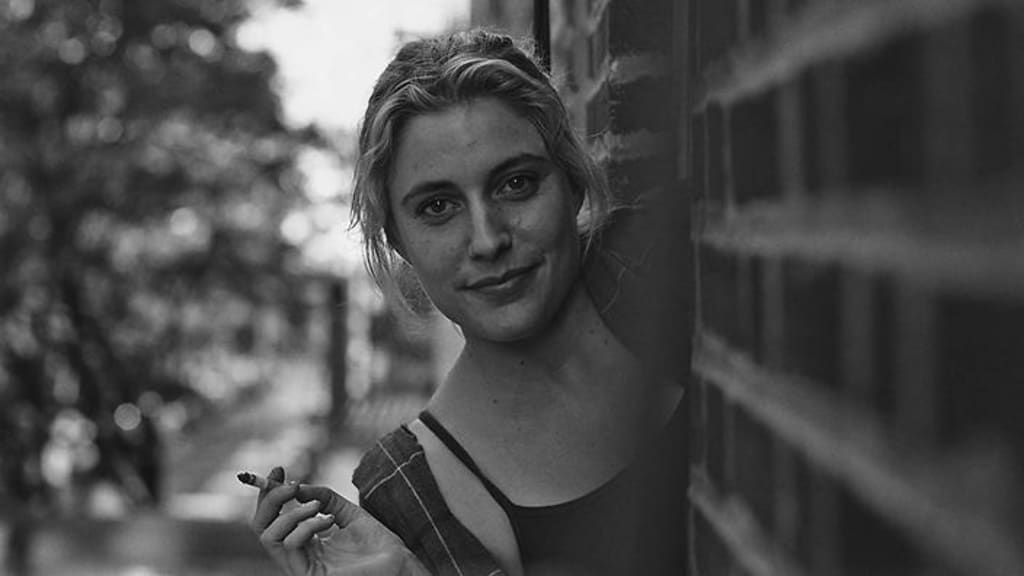Frances Ha: The Quintessential Coming-of-age Film for Idealists
And why millennials need to watch it

I believe that had this movie been in colour, the honest and most colourful parts of Frances Halladay would’ve been drowned out. The most colourful parts of her are the witty insights, and idiosyncratic mumblings that ironically enough many idealistic millennials can swear they’ve uttered at the most inopportune moments – just like Frances Ha. The cinematic choice to film in black and white strips the movie down to its bare-bones of "relatability," so as to make you reflect on your own relationship with your youthful aspirations and way of being. I say this only because I can recognize this film to be an homage to the all-too-familiar journey of moving away from being idealistic to realistic (as is often the case for many liberal arts-focused youth such as Frances Halladay – an aspiring professional dancer in New York City). The choice to film in black and white helps the audience focus on the internal, yet often unspoken, journey many millennials must face in order to grow up.
Besides the very easy-going development of plot throughout the film that speak to Frances’s journey towards maturity, there are also three physical manifestations that showcase this evolution. Which are, the progression of wardrobe choice for Frances Ha, her “break up” with very good friend Sophie, and her conscious decision to let go of her dream to tour with the dance company she apprentices for.
One of the most memorable moments of the film presents Frances Ha vivaciously dance-running through the streets of New York to David Bowie’s “Modern Love,” where she sports a funky dress, tights, chucks and a leather jacket. Her outfit and the moment mirrors her inner world painted with exuberance, idealism and youth. At this moment of the film, she is still going through the motions of being recently single, with two new spirited roommates, a best friend that is "the same [as her] but with different hair" and a job where she gets to do what she loves – all the while living in beautiful New York City. At this moment in her life, she seems content – however, completely unaware of how “she doesn’t have [her] shit together” or how she’s “Frances: undatable” according to roommate Benji. It’s around this time that the audience becomes aware of how little she refuses to “grow up,” especially with how she handles her friendships, finances, and career aspirations. This serves as a sharp contrast to the end of the film where we find Frances done up in business casual attire (as opposed to the many childish dresses she used to wear) as she prepares her own show with original choreography. After the show, Benji approaches her and bashfully asks whether or not she is still “undatable,” so as to reference their inside joke and implicitly express interest in her now that she’s evidently matured.
A very important part of the film is Frances' relationship with Sophie. She speaks so highly of her and often brings her up unprovoked that at times it seems to border on obsession for her best friend. Taking a step back however, the audience can recognize that Sophie represents something a little less tangible for Frances. Frances has projected onto Sophie her youthful days which she refuses to let go of, the same way it pains Frances to see Sophie move on without her by her side at all times. It’s also really interesting that they met in university, and so it seems that Frances has learned to associate Sophie with that time of her life often marked by nil responsibilities, spontaneity and romanticism. To Frances, she recognizes that her “rising star in publishing” best friend is ahead of her in life and can’t quite maneuver around this arduous reality she needs to face. Inevitably, their differences breed insecurity within Frances and the two friends have a falling out. However, it isn’t so much a breakup between best friends, but a parting between the “Old Frances” clinging to her youth (and the seemingly impossible aspirations that come along with it) and the “New Frances” that must learn to compromise and grow up. It is in that time apart that Frances slowly learns to mature and let go of “better days”.
One of the main things Frances learns to let go of is her dream to tour full-time with the dance company she apprentices for. She’s given a reality check and an opportunity by her boss at the dance company to think realistically about her future in dance, as she offers her a position doing clerical work for the company and encourages to create her own choreography instead of touring. In this moment, Frances still remains steadfast in her reverie of touring full-time with the company and refuses to settle for “an office job,” and believes she gave up making her own choreography after college. Frances leaves the meeting passively spiteful and implies she’ll find work in dance before she settles for office work. Scene ends abruptly and cuts to the next scene where we find Frances in the woods at her Alma Mater where we learn she works as a Resident Advisor (RA) and a waitress, all with room and board. It’s at a Donors party that Frances finds a sloppily drunk Sophie, expressing her resentments toward her fiancé. The two friends reconnect, and Frances nurses the drunk Sophie into a sweet and caring slumber in her RA dorm. Frances wakes up to an empty bed except for a “thank-you note” from Sophie. Fortuitously, Frances catches Sophie just as her car drives off and Frances runs towards the vehicle bare foot and distraught. Eventually, there comes a moment of clarity for Frances as she realizes how foolish it is to run barefoot towards a moving vehicle – and how this moment serves to be her final attempt at chasing after her youth. This is evident in how the very next scene sharply cuts to a montage of Frances in a much better place – working in the office for the dance company and choreographing her own work (just as her boss had suggested in the first place).
It took falling out with a best friend, temporarily being homeless, being burdened by credit card debt because of an impulsive trip to Paris and working as an RA and a waitress at her Alma Mater to really whip Frances into shape. And if you're a millennial in your 20's trying to figure life out, the film hits you with a sense of dissonant comfort as you can relate to Frances' rough patches. However, it was the moment she willingly loosens her hold on Sophie, and ultimately her idealism, that she truly begins to grow up - which can serve to be a very valuable lesson for 20 something year-olds experiencing their own form of arrested development. The famous “what I want in a relationship” drunken spiel where she talks about how it feels to lock eyes with your “person in this life” in a crowded room happens for Frances at the end of the film. But just as she says, “it isn’t possessive or precisely sexual,” she feels this way for her best friend Sophie and they lock eyes and smile at each other from across the room at the end of her show. I find this to be the most beautiful form of closure for Frances' journey as she’s made peace with her idealism; she's learned to keep idealism at bay, smiling fondly, not contemptuously, at her youthful aspirations and I hope others can find inspiration in that moment of growth too.






Comments
There are no comments for this story
Be the first to respond and start the conversation.